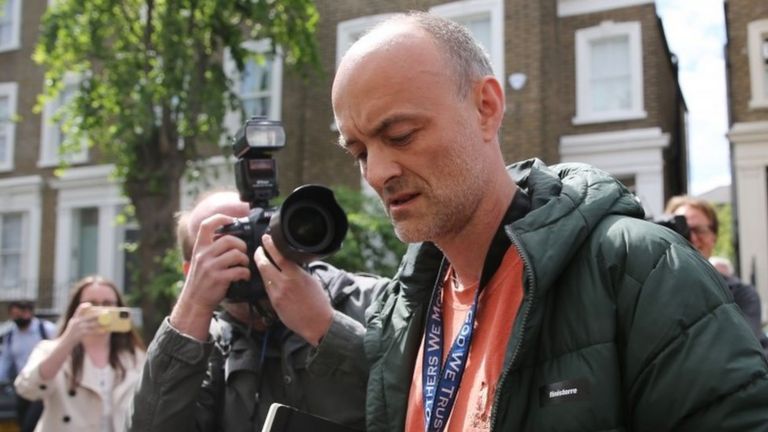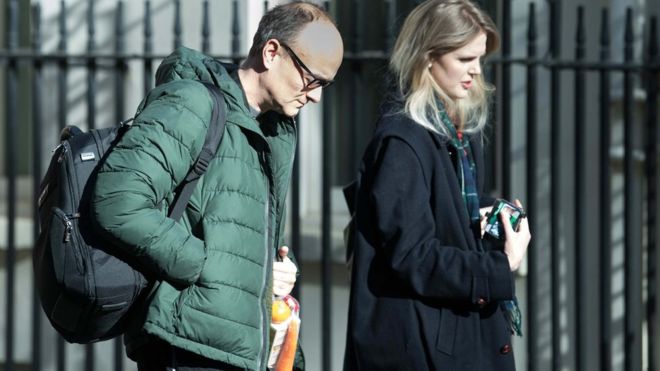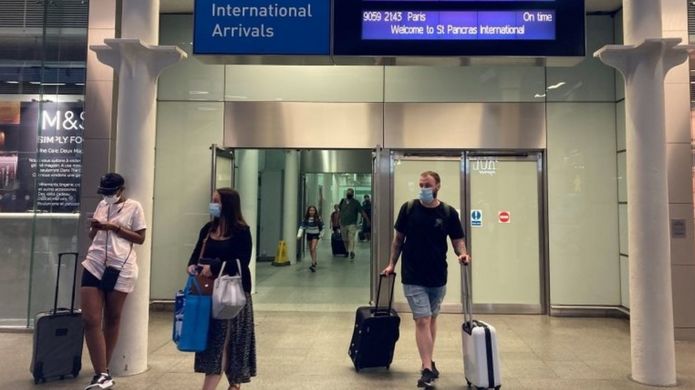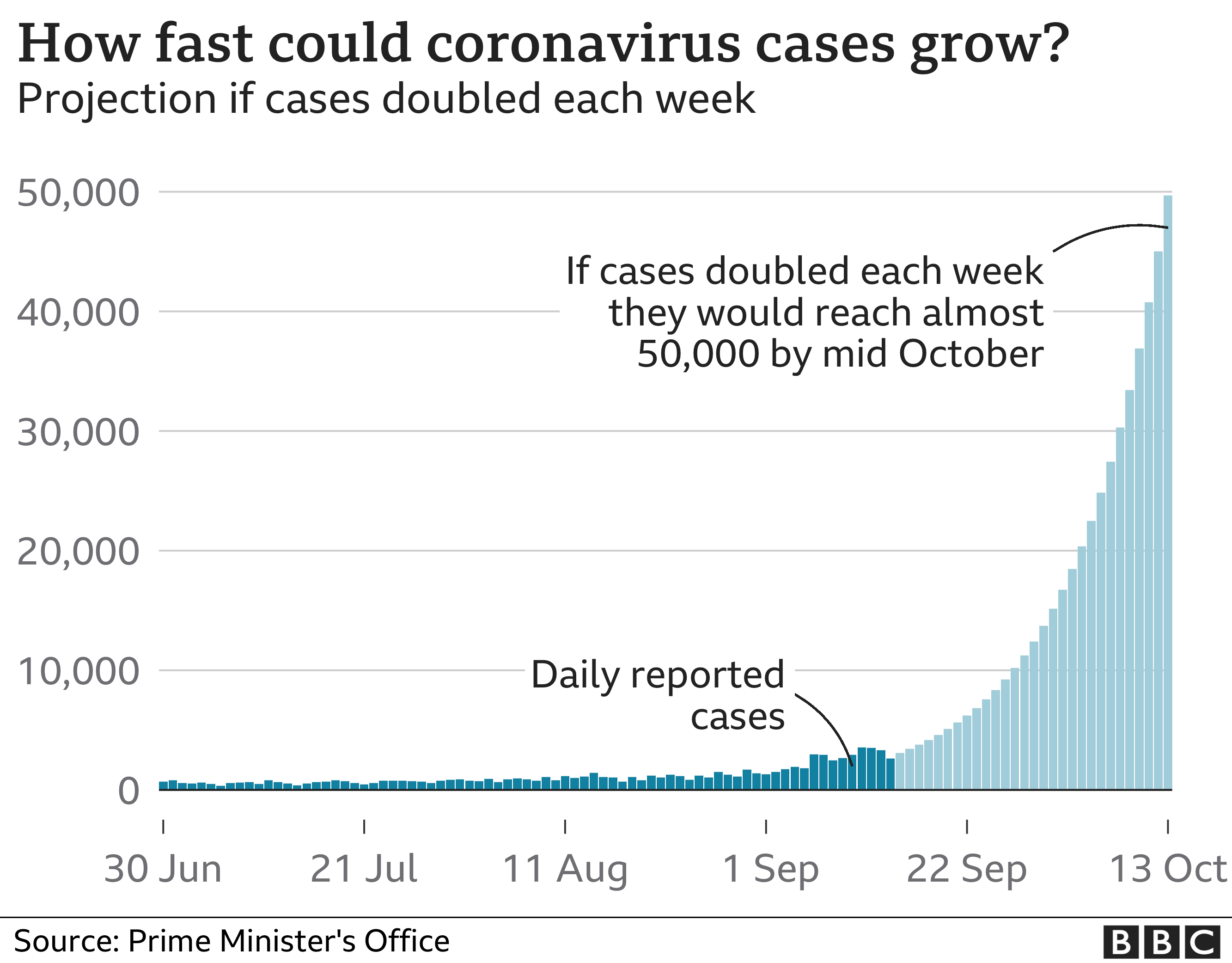|
|
Post by Admin on May 13, 2020 5:34:18 GMT
THE London Underground was packed with commuters this morning after Brits were told to return to work. But despite Transport for London's pleas for all travellers to wear face masks on public transport, many were seen without face coverings on the busy Tube.  Twitter user adeleye posted: 'Commute this morning is like a suicide mission, no social distancing, all cramped coaches on tubes'. Boris Johnson said that homemade masks should be worn in enclosed spaces where social distancing isn’t possible or where you may come into contact with people from outside of your household. The announcement covers passengers using the London Underground network, buses, black cabs and minicabs.  "The latest Government advice is that, although face coverings are unlikely to prevent you from getting the virus, they could help prevent you from giving it to others. "Face coverings are particularly important where two-metre social distancing is hard to maintain." No10 stressed that face coverings could include scarves and homemade masks - and added surgical masks used as vital PPE should be left for NHS and healthcare workers. |
|
|
|
Post by Admin on May 28, 2020 8:07:13 GMT
UK Prime Minister Boris Johnson's most senior adviser, Dominic Cummings, has said he acted reasonably and legally after driving 260 miles from his home to Durham during lockdown. What did he do and what does the guidance say?  23 March: The prime minister tells the UK public they "must stay at home". People are warned not to meet friends or family members they do not live with. Those with symptoms had already been told to self-isolate. 27 March: Mr Cummings is seen leaving 10 Downing Street. "I suddenly got a call from my wife who was looking after our four-year-old child. She told me she suddenly felt badly ill." He went home, but after a couple of hours his wife felt better and he returned to work. Guidance: If Mr Cummings believed his wife may have had coronavirus, the guidance was that "all other household members who remain well must stay at home and not leave the house for 14 days".  What are social distancing and self-isolation rules? Evening: Mr Cummings went on to explain - "That evening I returned home and discussed the situation with my wife. She was ill. She might have Covid although she did not have a cough or a fever." Mr Cummings said many people he worked closely with, including the PM, had had symptoms or were absent with symptoms. He said: "I thought there was a distinct probability that I had already caught the disease." Later: Mr Cummings drove up to Durham with his family, arriving "at roughly midnight". "I was worried that if my wife and I were both seriously ill, possibly hospitalised, there was nobody in London we could reasonably ask to look after our child and expose themselves to Covid. "My wife had felt on the edge of being able to look after him safely a few hours earlier." Mr Cummings did not say that at the point the family drove north his wife was unable to look after their child. Guidance: Stay at home is the simple government advice for households where one or more members have coronavirus symptoms. However, the main advice page says it is not always straightforward when children are involved. It says: "If you have children, keep following this advice to the best of your ability, however, we are aware that not all these measures will be possible." Other government advice did not contain this caveat, such as the leaflet drawn up at the end of March to be sent to every house. Nor did the government page on essential travel which said: "Essential travel does not include visits to second homes... whether for isolation purposes or holidays. People must remain in their primary residence." |
|
|
|
Post by Admin on Aug 15, 2020 6:32:52 GMT
Thousands of holidaymakers have rushed back to the UK in a bid to avoid quarantine measures imposed on France, which came into force on Saturday. The 14-day isolation requirement from 04:00 BST also applied to people arriving from the Netherlands, Monaco, Malta, Turks and Caicos, and Aruba. Eurotunnel trains sold out on Friday and air travellers faced steep prices, but some ferries increased capacity. France warned it would take "reciprocal measures".  The Netherlands warned against all but essential travel to the UK once the restrictions came into force on Saturday, but it said it will not introduce reciprocal measures. The countries were targeted for quarantine restrictions because their infections rates exceeded 20 cases per 100,000 people over seven days, Transport Secretary Grant Shapps said. |
|
|
|
Post by Admin on Sept 21, 2020 19:24:18 GMT
The UK could see 50,000 new coronavirus cases a day by mid-October without further action, the government's chief scientific adviser has warned. Sir Patrick Vallance said that would be expected to lead to about "200-plus deaths per day" a month after that. It comes as the PM prepares to chair a Cobra emergency committee meeting on Tuesday morning, then make a statement in the House of Commons.  On Monday, a further 4,368 daily cases were reported in the UK, up from 3,899. A further 11 people have also died within 28 days of a positive test, although these figures tend to be lower over the weekend and on Mondays due to reporting delays. Speaking at Downing Street alongside chief medical adviser, Prof Chris Whitty, Sir Patrick stressed the figures given were not a prediction, but added: "At the moment we think the epidemic is doubling roughly every seven days. "If, and that's quite a big if, but if that continues unabated, and this grows, doubling every seven days... if that continued you would end up with something like 50,000 cases in the middle of October per day. "Fifty-thousand cases per day would be expected to lead a month later, so the middle of November say, to 200-plus deaths per day. "The challenge, therefore, is to make sure the doubling time does not stay at seven days. |
|
|
|
Post by Admin on Oct 2, 2020 19:25:11 GMT
Buckingham Palace and Windsor Castle have canceled all large-scale events set to take place at the two royal institutions for the rest of the year.
The palace released a statement regarding the cancellations today. The announcement is a precautionary measure following the news of rising coronavirus cases across the United Kingdom.
"In line with current government guidelines, and as a sensible precaution in the current circumstances, there will be no large scale events held at Buckingham Palace or Windsor Castle for the rest of the year," began the statement. "A variety of possibilities were examined to see if it was possible for Investitures to safely take place in line with the guidelines. Sadly, due to the large numbers of guests and recipients attending, it was not possible to find a way of safely delivering these events in the current circumstances. Recipients will be contacted directly."
The statement also shared how the cancellations would affect Queen Elizabeth II and her upcoming engagements.
"The Queen's intention remains to return to Windsor Castle in October and to resume the use of Buckingham Palace during an Autumn programme of Audiences and engagements, in line with all relevant guidance and advice," concluded the statement.
The royal family has had a slew of special events and appearances canceled since the start of the coronavirus pandemic. Signature events such as the queen's summer parties in the Buckingham Palace gardens and the annual Trooping the Colour parade have been postponed until it's safe for the public to convene together again
|
|